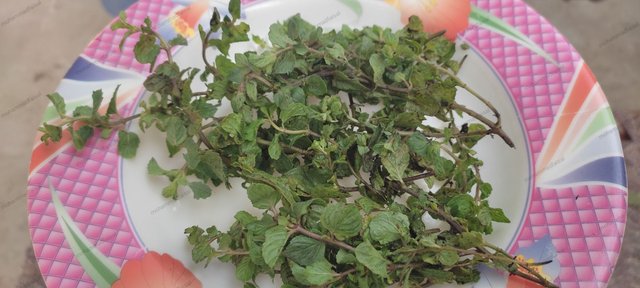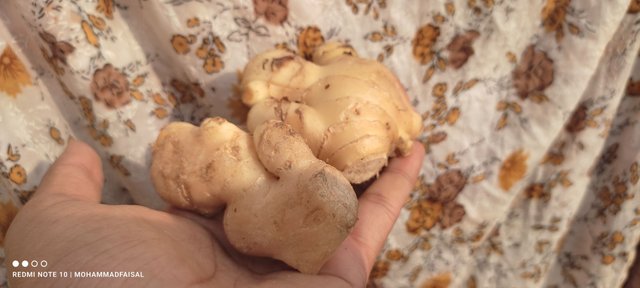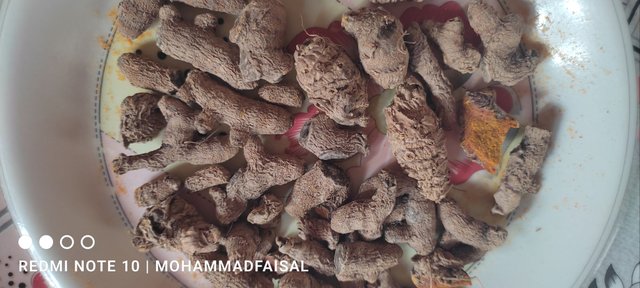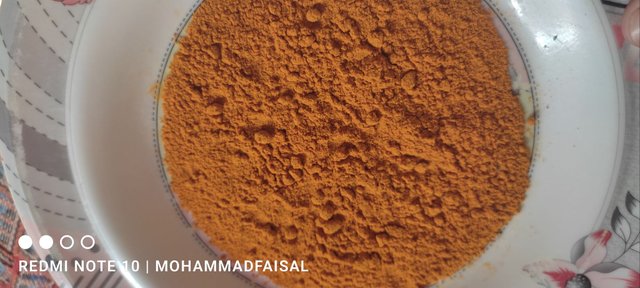Hello everyone! I hope you will be good. Today I am here to participate in Steemit Learning Challenge of @afzalqamar about the herbal medicines. It is really an interesting and knowledgeable contest. There is a lot to explore. If you want to join then:
Research and write a history of herbal medicine in your culture or region.
Herbal Medicines has a grey history in Pakistan. As Pakistan is the part of the Asia and specifically sub continent of India so herbal Medicines are in use from the last many years. In herbal medicines Ayurvedic and unani medicines are very famous in Pakistan. These are the oldest systems to cure diseases. In this area people from different regions and areas were living together. They used their previous knowledge to cure the diseases in this region with the help of the herbal medicines.

Early History and Influences
In the starting era of Islam different practices of Ayurveda was developed. When Islam arrived in sub continent in the 8th century then the herbal medicines became popular in this area. Unani medicines also known as Greco Arabic. The Muslims introduced new herbs and remedies. They integrated those herbs and medicines with the local treatments. It was a great hybrid approach in the diverse population.
There were many Muslim herbalists and scientists. They played an important role for the development of the herbal medicines. There are several popular personalities and they are well known in the whole world. Ibn Sina who is known as Avicenna gave a lot of services in the medicine field. His books are being taught in the universities. He wrote a book canon of medicine. It became a great source for the herbal and unani medicines. In Pakistan traditional healers are known as Hakims. They use old knowledge and prepare medicines with herbs.
I have seen these herbs work very well. Even I have used these herbal medicines for my own cure. I had Bell's palsey. I had many English medicines but they did not work. Then I got herbal medicines and I got recovered completely.
Common Herbs Historically Used in Pakistan
In Pakistan many herbal medicines are used. But I will die yes here some most commonly used herbs.
Ajwain: This is the common herb. It is known as carom seed internationally. I have used ajwain many times. I often take ajwain tea. It helps me to make my throat infection free. I use this herb for the cold. This is used as a household herb in Pakistan. This is very useful for indigestion and respiratory problems.
Haldi: This herb is known for its name turmeric. But as I am explaining it according to my region it is called haldi here. In my home this herb is used on a daily basis in the cooking. It is actually a root 🫚 . It has many benefits. If someone gets any cut then we use it by mixing its powder in the milk. Haldi is a great source to reduce inflammation in the body.
Neem: This herb is called Azadirachta indica. This is of green colour. It is a big tree and its leaves are used as medicine. I will add the example of this herb 🌿 as cure. My sister in law got swelling and inflammation in her foot. We are using neem by boiling it with salt and we are washing her foot 4 times a day with this. It had worked a lot to reduce the inflammation in the foot. So in this way we can use this as a herbal medicine.
Tulsi: This is known as Holy Basil. We use this herb for the cure of respiratory problems. Tulsi increases the immunity. This has a great taste. We can make it tea and we can take it easily with its deliciousness.
Kalonji: This herb is very useful and it is known as Black Seed. You will not believe that this herb is the cure of all diseases except death. Being a Muslim I believe in this statement. It is also used in the pickle. My mother used it during the preparation of the pickle at home each time.
Saunf: This herb is very famous for its cooling effect and fragrance. This is known as fennel. This is used for digestive problems. My sister eats fennel after the meal for the digestion. We can chew these seeds. My mother used these seeds in the tea and they add a unique taste in the tea.
Aloe Vera: I think everyone is familiar with this herb. This is widely used especially in cosmetics. We use the hair gel of Aloe Vera to make the hairs smooth and silky. I have hair gel made with Aloe Vera for my personal use.
Create a table comparing the benefits and side effects of modern medicines vs. herbal medicines for common ailments (e.g., cold, headache)
Here’s a comparison table of the benefits and side effects of modern medicines versus herbal medicines for common ailments:
| Ailment | Modern Medicines | Herbal Medicines |
|---|---|---|
| Cold | Benefits: Fast symptom relief, reduces fever, nasal decongestant. | Benefits: Eases congestion, boosts immunity such as ginger and tulsi. |
| Side Effects: Drowsiness, upset stomach, dependency with long term use. | Side Effects: Allergic reactions but these are rare. They are slower to act. | |
| Headache | Benefits: Quick pain relief, reduces inflammation such as ibuprofen and aspirin. | Benefits: Calms nerves, relieves mild pain such as peppermint and lavender. |
| Side Effects: Stomach upset, risk of liver or kidney issues with long term use. | Side Effects: It can cause mild digestive issues rarely and slower action. | |
| Digestive Issues | Benefits: Rapid symptom control. It treats specific conditions such as antacids and laxatives. | Benefits: Eases digestion, natural anti-inflammatories such as fennel, ajwain and ginger. |
| Side Effects: Dependency (laxatives), stomach irritation. | Side Effects: Possible mild bloating, requires consistent use for effect. | |
| Stress/Anxiety | Benefits: Immediate calming effect, reduces panic (e.g., benzodiazepines, antidepressants). | Benefits: Natural calming effects, promotes relaxation (e.g., chamomile, ashwagandha, lavender). |
| Side Effects: Drowsiness, risk of addiction, potential withdrawal symptoms. | Side Effects: May take longer to see results; effectiveness varies among individuals. | |
| Skin Issues | Benefits: Treats infections, reduces acne or rashes (e.g., topical antibiotics, steroid creams). | Benefits: Antibacterial and soothing (e.g., neem, aloe vera). |
| Side Effects: Skin thinning (steroids), possible resistance to antibiotics. | Side Effects: Mild irritation or allergies in rare cases, slower healing time. |
This table provides a quick overview, but the choice between modern and herbal medicines often depends on the individual, severity of symptoms, and preference for natural or faster treatments.
Choose 3 herbs from your kitchen like mint, ginger, or turmeric and list their health benefits. Mention the recipes where you have used these herbs.
Here are three common herbs which are used in the kitchen. I have chosen mint, ginger, and turmeric. I will explain their health benefits and popular recipes where they can be used. The detailed information is given below:
Mint
This is the most commonly used herb in everyday life. It is the part of the kitchen. It is of green colour with the small leaves. The scientific name of mint is mentha.

Health Benefits
There are a number of health benefits of mint. These health benefits are given below:
Helpful in Digestion
Mint is really famous for its digestive property. It is used to get relief from the gas and indigestion. Actually it relaxes the muscles of the stomach abd digestive track. This relaxation in the muscles help to pass through the digested material.
I will quote the health example from my own experience. Actually I like to use mint in the form of sauces and raita. It helps me to make my digestive system strong and helps me to digest the food easily.
Moreover my mother uses it by boiling it in the water. It helps her a lot to make her digestive system works more better.
So the mint is very useful for the indigestion.
Helpful to remove Cold Symptoms
Mint has menthol. And menthol is a natural decongestant. This menthol available in the mint helps to open the airways. It helps in easy breathing and ultimately it is helpful for the sore throat.
Improves Oral Health
Mint has antibacterial properties. It freshes our breath and kills the oral bacteria. Due to its this property mint is used in the mouth washes and in the toothpaste.
Cooling effect
As mint has menthol so because of this it is also used for the cooling effect. It is helpful to prevent the skin from irritation. We can notice that the irritation or itching removal medicines has mint in them to make the body cool.
Recipes
We can use mint in different recipes. Some recipes are given below:
- Mint Tea: In order to make mint tea we can boil fresh mint leaves in water. And then according to our needs we can add some honey or sugar to make it sweet so that we can take tea easily. We can also use lemon in the mint tea. Mint tea provides soothing effects.
Mint Sauce: This is a very easy recipe we can blend mint leaves with coriander and green chillies to make the sauce. In order to make it more tasty we can add lemon juice and salt. And now the refreshing mint sauce is ready to use. We can use it with bread and snacks.
Mint Raita: Mix chopped mint leaves into yogurt with a pinch of salt and cumin for a cooling dip.
Ginger
Ginger is also the commonly used herb in daily life especially in kitchen. It has become an essential part of each dish. Ginger is a root 🫚 which grows inside the earth just like potatoes. The scientific name of ginger is Zingiber officinale. It is used as a spice and herbal medicine for the long term.

Health Benefits
Ginger is a powerful root and it has a lot of health benefits:
Relieves Nausea and Vomiting
Ginger is very useful to control nausea. It is effective for nausea-like morning sickness during pregnancy. Sometimes women face vomiting because of the pregnancy and ginger is helpful to control vomiting and nausea. It is useful for the motion sickness. It plays its role for the chemotherapy induced nausea.
Reduces Inflammation and Pain
Hi get us an anti inflammatory herb. It can reduce muscle pain. Sometimes due to the workout we feel pain in our muscles which arises due to the soreness in the muscles. And ginger can reduce the muscle soreness and in this way the pain will also controlled. Ginger can control joint pain which is associated with arthritis. If we have inflammation in our body then we can also take ginger for the reduction of inflammation.
Aids Digestion
Ginger is widely used in recipes because of its taste and digestive behaviour. It helps the stomach to speed up the digestion process. Ginger is beneficial for those people who have indigestion. It helps to get relief from bloating. Sometimes we feel discomfort right after eating our meals but if we use ginger in the meals then it can protect us from discomfort after meals.
Boosts Immunity
Immune system should be strong in our body to fight against the diseases. As ginger has antimicrobial and antifungal properties so ginger make our immune system strong. And this strong immune system helps to prevent infections. Moreover ginger helps to reduce common cold and flu by making our immune system strong.
Lowers Blood Sugar and Improves Heart Health
According to some studies the scientists have derived that ginger helps to reduce blood sugar levels. Ginger had the ability to reduce cholesterol levels in the body. It regulates the blood pressure. Moreover it improves the heart health. My father got a heart attack and the physicians suggested to use ginger and other herbs. So it maintains the blood sugar level and heart health.
Eases Menstrual Pain
Ginger is used to reduce the menstrual cramps. According to some studies it is said that it can work like the pain killer medicines.
Recipes
We can use ginger in different recipes such as in tea, stir fries dishes to get health benefits. Some recipes are given below:
Ginger Tea: We can cut the ginger into slices. Then we can boil the slices of ginger in water. The ginger tea is ready. But according to our needs we can add sugar, honey and lemon in the tea. Adding these additional things will make its taste better to take orally. It is a warming and immunity boosting tea.
Stir Fry: We use grated ginger in vegetables. And using grated ginger in vegetables is very common and without this the recipe is incomplete. We can add grated ginger in chicken stir fries. It will make chicken spicy. It will add aromatic flavour.
Turmeric
Turmeric is also commonly used herb. The scientific name of turmeric is Curcuma longa. It is a flowering plant. It is natively found in southeast Asia and Indian subcontinent. This herb requires specific temperature from 20 to 30 degrees celcious. There is the need for rain as well to flourish it. It grows underground. It has golden colour and when it becomes dried it's colour become more dark. It is widely used in the daily recipes, beautiful creams and medicines.

Health Benefits
Turmeric has a number of health benefits due to its active compound curcumin. Health benefits are given below:
Powerful Anti Inflammatory
Turmeric has curcumin. This curcumin is known for its strong anti inflammatory effects. It can help to reduce chronic inflammatory conditions such as arthritis. If someone gets hurt then they can take turmeric powder in hot milk. It will heal their wounds.
Rich in Antioxidants
Turmeric is also an antioxidant. It is used to neattalize free radicals. The major health benefit of turmeric is that it protects the cells from damage. Moreover it slows down the aging of cells by protecting them.
Boosts Brain Health
Turmeric has another great health benefit. It can increase brain derived neurotrophic factor. This improves the memory of the brain. It is also very useful for other brain diseass such as Alzheimer's. It reduces the risk of neurodegenerative diseases.
Supports Heart Health
Turmeric is very useful for the improvement of the heart health. Curcumin improves the function of endothelium. Endothelium is the lining of blood vessels. So turmeric can help to regulate the blood pressure. And in this way it reduces the risk of heart disease.
Aids in Digestion
Turmeric increases the bike production. The bike production helps in digestion. It helps to reduce the symptoms of bloating and gas.
Natural Antimicrobial
It has health benefit of strong immune system. It has antibacterial and antiviral properties. It is also antifungal. So turmeric herb makes our immune system strong to fight against the infections.
Helps Manage Joint Pain
Turmeric has another great health benefit of joint pain. As we know that it is anti inflammatory which removes inflammation around the joints. It reduces the joint pain. If someone has osteoarthritis or rheumatoid arthritis then it can also helpful to cure them.
Turmeric is also useful for the skin health. It supports liver health and detoxification.
Recipes
Turmeric can be used in different recipes to get it's advantages of health benefits. These recipes are given below:
Golden Milk: This is a very famous recipe. We can mix turmeric powder in the warm milk. We can add honey and a pinch of black pepper. It will become a comforting and anti inflammatory drink. In its health benefits I have talked about this milk which is used in the wound conditions.
Turmeric Rice: We can use turmeric herb in rice. It adds colour and taste to them. It makes them fragrant.
- Smoothies: We can blend a pinch of turmeric herb in smoothies such as in pineapple and ginger. We can use it in coconut milk smoothies.
In order to use in the recipes we use turmeric herb in the form of the fine powder.
Write about the different forms of the herbs.
Herbs can be used in various forms. Here are the common forms of herbs:
Fresh Herbs
Fresh herbs are the herbs gotten straight from the plant. They have their natural oils and flavours. They are used for cooking and garnishing. We can use them to make teas. We can use fresh herbs in salads such as mint, coriander and basil.
We can use fresh herbs to to add flavour to dishes. Fresh herbs can also be used in hot water and teas. As this form of herb is fresh so it contains fresh taste and maximum health benefits. These are full of natural compounds.
Dried Herbs
This is another form of herb. In order to make herbs dry we need to dehydrate them. The herbs are dried to make them more sustainable. The dried herbs do not become spoil. Dried herbs are available in the crushed as well as whole form. Dried herbs have concentrated flavour.
Dried herbs are commonly used in cooking as well as to make herbal teas. We can use dry herbs in soups, sauces and marinades. Some dry herbs are oregano, thyme and rosemary.
The biggest advantage of the dry herbs is that we can store them easily.
Herbal Powders
Herbal powders are made by grinding dry herbs into completely fine powder. Common examples of powder form of herb are turmeric powder and ginger powder.

These powder form herbs are used in the kitchen. We can use them in cooking, smoothies and supplements. Herb powders are popular in spices. We can blend powder herbs in curries, teas and healthy drinks.
These powder herbs are easy to use. The powder form herbs are also easily digestible. If we want to take them as medicine we can fill them in capsules. In this way we can use powder herbs easily.
Tinctures
Tinctures of herbs are the concentrated liquid extracts. These are made by soaking herbs in the vinegar. This form of herb is easily absorbed by the body.
Tinctures form of herbs is taken as drops. We can also mix them in the water and take them by diluting them.
Tinctures are very useful for the immediate relief and effect. Be ause they are absorbed in the bloodstream easily. This form of herbs is compact and we can easily carry it from one place to another place.
Oils
Oils of the herbs are the concentrated extracts of the herbs. These are made by distillation. This form of herb has aromatic compounds of herb.
These oils are used for the aromatherapy. We can use herbs in oil form for the skin care. They have diffusing property. We can use Herne in the oil form for the massage purpose.
The herbs in the oil form has strong aroma. They have therapeutic effects. It is effective to get relief from pain and stress. We can use oils for the respiratory problems. Oils are thick and potent. We should use them carefully.
Each form of herb has its own benefits and uses. We can use them according to our needs.
Pick one herb and research any potential side effects and how to avoid them.
There are different herbs and I have also discussed different herbs. But I am choosing turmeric as an example because this is widely used in recipes and I'm medical use.
Indeed turmeric has a number of benefits as I have explained them earlier but it also comes with the side effects. Here are side effects of turmeric.
Digestive Issues
If we take turmeric in high quantity then it can upset our stomach. It can cause acid reflux. A high dosage of turmeric can also cause bloating and diarrhea.
How to Avoid
We should use it in small dose. This precaution is necessary if we are taking it as supplement. We can increase it's quantity gradually. If we are too much sensitive that we are unable to use it directly as supplement then we can take it with meal.
Blood Thinning Effects
Naturally turmeric has blood thinning characteristics. So the excessive use of turmeric can increase the risk of bleeding.
How to Avoid
If we are using blood thinning medicines such as aspirn or warfarin then we should not take heavy dose of turmeric. Moreover we should consult with the healthcare provider before using turmeric supplements.
Kidney Stones
Turmeric has oxalates. The oxalates can increase the risk of kidney stones formation. Those people who already have kidney stones can face more stones in their stomach because of the excessive use of turmeric.
How to Avoid
If we are at the risk of kidney stones then we should reduce it's quantity. Moreover we should take turmeric with those foods which have calcium. Because calcium can bind oxalates and in this way it will reduce it's absorption in the body.
Lower Blood Sugar Levels
Turmeric herb can also decrease blood sugar. This is a problem especially for those people who have diabetes.
How to Avoid
If we have blood sugar problems or we are taking medicines to control blood sugar then we should closely monitor the levels. We should speak with doctor before taking turmeric.
Iron Absorption Interference
As we know that turmeric has curcumin. And this curcumin can bind iron with it. And it will reduce absorption of iron in body. And it can cause deficiency of iron in the body.
How to Avoid
First of all check your iron and if you have low iron level then do not take turmeric. Because if you take turmeric it will further reduce the iron in your body. Moreover if you are taking medicines for the iron deficiency then also avoid taking supplements of turmeric so that the medicines can increase iron level in your body.
As a general I will must say that always contact your doctor before using any herb such as turmeric. Your healthcare provider can guide you in an efficient way and can tell you about the advantages as well as disadvantages. Then you can easily decide seeing your health whether to take any herb like turmeric or not.
I invite @suboohi, @patjewell and @heriadi to join this contest.
X Promotion: https://x.com/stylishtiger3/status/1852584512988790807
Downvoting a post can decrease pending rewards and make it less visible. Common reasons:
Submit
Hi @mohammadfaisal
Obat herbal benar benar membantu memulihkan penyakit walaupun efeknya tidak langsung terasa, obat herbal juga mulai di produksi secara moderen untuk dapat di konsumsi oleh banyak orang, saya yakin obat obat yang anda sebutkan tidak memiliki efek samping yang serius jika dibandingkan obat kimia
Terimakasih atas undangannya, saya akan segera berpartisipasi, namun saya bukan ahli di bidang ini, saya perlu banyak referensi untuk menulis tentang obat obatan
Downvoting a post can decrease pending rewards and make it less visible. Common reasons:
Submit
Thank you for stopping by here. I have a special tip for you. You just need to look into the lecture of the professor and you will be able to do it.
Downvoting a post can decrease pending rewards and make it less visible. Common reasons:
Submit
Tentu saja kiat yang anda katakan sangat berguna, saya akan segera berpartisipasi, semoga saja saya memiliki waktu untuk menulisnya
Downvoting a post can decrease pending rewards and make it less visible. Common reasons:
Submit